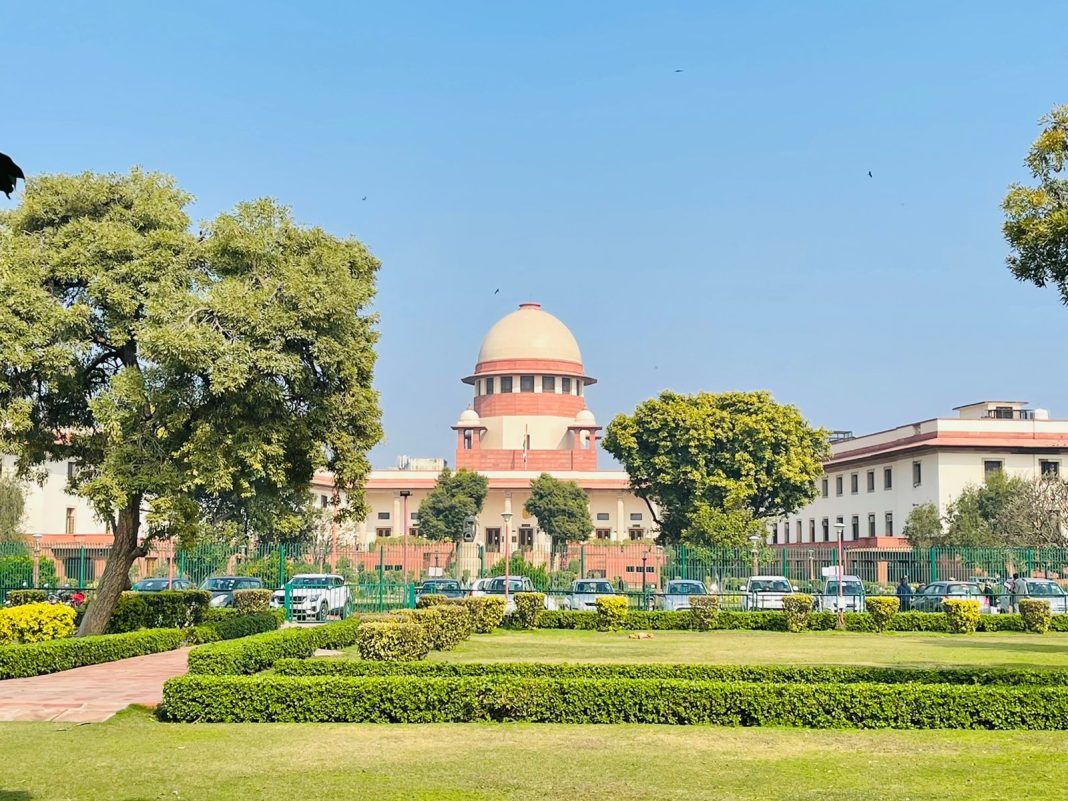The Supreme Court has observed that though a noticee under the SEBI (Prohibition of Fraudulent and Unfair Trade Practices) Regulations has a right to disclosure of material relevant to proceedings against him, the same was valid only under the protection of third-party rights.
If SEBI was able to show that the disclosure would have an adverse effect, the burden of proving necessity would move to the noticee, observed a Bench comprising Justice D.Y. Chandrachud and Justice Sanjiv Khanna said on Friday.
It said the respondent should prima facie establish that the disclosure of the report would affect third-party rights and the stability and orderly functioning of the securities market.
This notice was challenged by the appellant, who stated that such non-disclosure was violative of principles of natural justice.
The Apex Court passed the order on an appeal challenging an order of the Bombay High Court, which upheld that a showcause notice issued without an investigation report under the Securities and Exchange Board of India Act for misstating a company’s financial affairs.
Also Read: Educating Our Teenagers
The SEBI had stated that the investigation report could not be shared as it was an internal document. Further, the appellant was informed that SEBI’s investigation report was not relied on to issue the show cause notice and thus, would not be provided.
However, the appellant moved the High Court against the notice stating that the non-disclosure of all relevant documents relied on to issue a showcause notice violated principles of natural justice.
The High Court dismissed the petition, concluding that the investigation report need not be furnished while issuing a showcause notice. A review petition was also rejected by the High Court.
The respondents submitted before the top court that only materials relied on by the Board needed to be disclosed, whereas the appellant contended that all relevant materials were required.
It was the appellants contention that the duty to disclose was not contingent on whether the respondent relied on the document, but was invoked when a request made for a document was found to be reasonable.
Also Read: Teenagers involved in romantic affair do not fall under the ambit of POCSO: Allahabad High Court
In fact, it was submitted that Regulation 10 required the entire investigation report be disclosed to the notice, apart from certain well-recognised exceptions.
The respondents, however, opposed this on the ground that all relevant documents were provided to the noticee, including the report which formed the basis of the show cause notice.
It was also the respondents concern that since investigations conducted by SEBI were highly sensitive given the volatile nature of the market, their disclosure may adversely affect the market. This concern also extended to the personal information of other stakeholders contained within the investigation reports.
“Sharing such information with the noticee will raise concerns regarding the privacy of third-parties and also affect their competitive position in the market,”
-SEBI said.
The principal issue that fell for the Court’s consideration, thus, was whether an investigation report under Regulation 9 of the PFUTP Regulations must be disclosed to the person to whom a notice to show cause is issued.
The Bench began by establishing that as a default rule, all relevant material must be disclosed, and it would fundamentally be contrary to the principles of natural justice if relevant parts of the investigation report pertaining to the appellant was not disclosed.
However, the caveat emphasised by the Court was that the actual test was whether the material required to be disclosed was relevant for purpose of adjudication.
“If it is, then the principles of natural justice require its due disclosure,” the Court said.
With this, exceptions to this general rule were discussed. It was noted that the right of the noticee to disclosure must be balanced with a need to preserve any other third-party rights that may be affected.
Also Read: Madras High Court disposes of PIL with Rs 5,000 cost for misusing court to settle personal score
“The requirement of compliance with the principles of natural justice cannot therefore be read to encompass the right to a roving disclosure on matters unconnected or as regards the dealings of third parties,”
-the judgment stated.
Coming to the facts, it was the Court’s view that the appellant did not sufficiently discharge his burden by proving that the non-disclosure of the above information would affect his ability to defend himself.
However, the respondent could only claim non-disclosure of parts that dealt with third party personal information and strategic information on the functioning of the securities market.
Also Read: Supreme Court to hear PIL challenging Gujarat High Court order on slum dwellers on February 25
Reaching a balanced conclusion, the Court directed the Board to redact information which impinged on others’ privacy, but retain parts that were necessary for the appellant to defend his case.
“If the investigating authority attempts to circumvent its duty by revealing minimal information, to the prejudice of the appellant, it will be in violation of the principles of natural justice,”
-the judgment cautioned.
This, however, would not permit a roving inspection on the appellant’s part, the top court made it clear while setting aside the High Court order.
Case name: T. Takano v. Securities and Exchange Board of India


